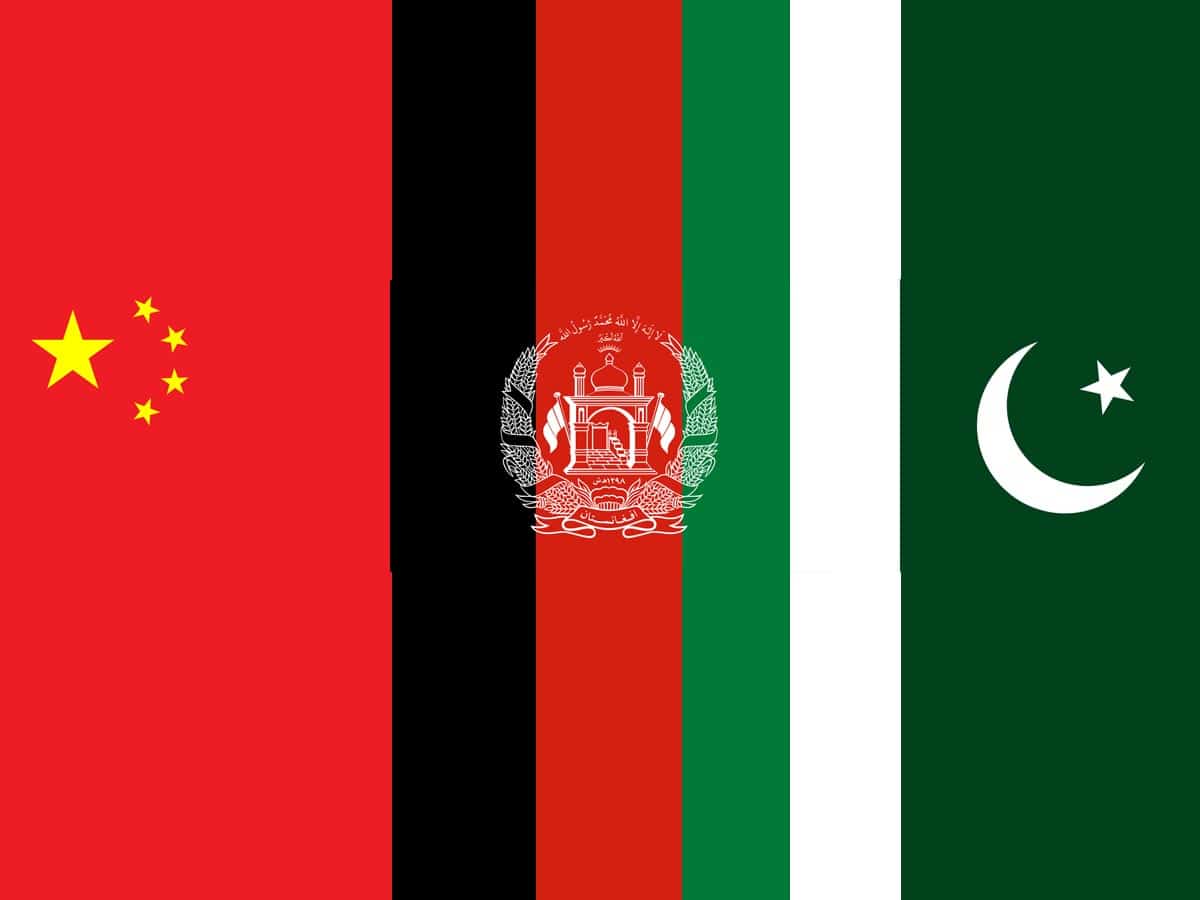The emerging scenario in South Asia in which China and Pakistan are seeking to gain greater influence in Afghanistan is an ominous signal for India, as both Beijing and Islamabad are working to further their larger strategic interests to keep the US and Delhi out of the new game that is getting underway in the region.
China is hosting fourth- China- Afghanistan – Pakistan Trilateral Foreign Ministers’ Dialogue on Thursday in search of what is being described as an interest in peace and reconciliation process in Afghanistan.. This may appear to be a sincere effort of China to help Afghanistan find peace and stability that it had been missing for so long that the country has become synonymous with the larger-than-life size trouble spot of the world where even the most powerful country like America has given up and has started packing its bags back home.
President Joe Biden’s decision to take all American and NATO troops out of Afghanistan by September 11, marking the 20th anniversary of the 9/11 terror attacks of 2001 that shook America and made the world aware of the power and reach of the terrorist networks , had only one goal in mind – to keep itself out of the future troubles in the war-torn country. There was no plan B, nor it has any at the moment. It has spoken in cliches, rather than in the real strategic terms.
It is above any questioning that America could not have stayed in Afghanistan , which has been a territory used by the world powers for the Great Game , forever. America was fatigued with its two-decade long stay in Afghanistan where it lost its soldiers, civilians and billions of dollars and trusted an untrustworthy ally in Pakistan . The strategic flaw was that Biden in his hurry to bring American troops back home did not anticipate that he was leaving a bigger trouble for South Asian region and paving way for China . It should have been anticipated going by the knowledge that China and Pakistan are all weather friends and they have a deep interest in controlling land and resources of Afghanistan . They are happier than ever in watching the US troops leave Afghanistan .
Beijing had anticipated this scenario much before Biden came to power in January this year. It is evidenced by the trilateral dialogue mechanism that it worked out way back in 2017. It had sensed that America after losing so much in Afghanistan cannot sustain itself beyond a point . Its strategic thinking has turned into a reality- first America tried to find a route to stability in Afghanistan through talks with Taliban, the main force and inseparable ally of al-Qaeda terror network , in destabilizing Afghanistan and setting up a pucca home for the terror networks .This was a grand shift . Diplomacy was to be given a chance instead of an all-out war .
The US government appointed a veteran diplomat Zalmay Khalilzad its special representative for Afghanistan on September 21, 2018 , to start the diplomatic process and bring Taliban to table . That he did by negotiating with Taliban in Doha, Qatar and also after meeting government officials in Pakistan and Afghanistan and Gulf countries . This resulted into what was touted as a big success but now it all but failed as Taliban has not reduced its violence level . Its aggressive designs are continuing . The failure of the mission of US’ special representative has come as a boon to China.
Today, China will host the trilateral dialogue with foreign minister of Pakistan , Shah Mehmood Qureshi , Afghan Foreign Minister Mohammad Hanif Atmar. Chinese Foreign Minister Wang Yi will preside over the trilateral dialogue .
The Chinese agenda is clear it wants to exploit the uncertainties that have swamped Afghanistan with what it calls “ the unilateral withdrawal at the critical stage of peace and reconciliation process in Afghanistan.” It has concluded , as Chinese Foreign Ministry spokesperson Wang Wenbin spelled out at press briefing on Wednesday , that apart from this act of the US withdrawal has brought uncertainties in Afghanistan’s domestic situation and regional security landscape .”
China and Pakistan have taken upon themselves the role suiting the neighbours desirous of maintaining regional peace and stability. The aspirations seem to be noble , but two things emerge out clearly that they are blaming the US and NATO for the current dangerous situation in Afghanistan, and at the same time want to assure Afghanistan that they are the real friends and partners in peace.
India that is much bigger power in the region and has wider stakes in peace and stability in Afghanistan is out of picture. India, weakened by the crippling effects of the second wave of coronavirus is not being considered as a country that can play its due role . There have been some complimentary words by the US, but on the ground , it is China and Pakistan that have moved ahead .
India has reasons to worry; the two neighbouring countries have not shown any concession in their hostilities toward India and Pakistan , encouraged by China , is back on its peace-spoiling rhetoric on. Kashmir .
This time , if China joins hands with Pakistan on Kashmir, it would be a critical situation . In 1989 when Soviet troops were out of Afghanistan , Pakistan had diverted terrorists, terrorism machinery toward Kashmir . That fact cannot be forgotten nor ignored .
Arun Joshi is senior strategic analyst and author based in north India. He has authored four books , including “Eyewitness Kashmir: Teetering on Nuclear War.” He can be approached at ajoshi57@gmail.com
Views expressed are personal

